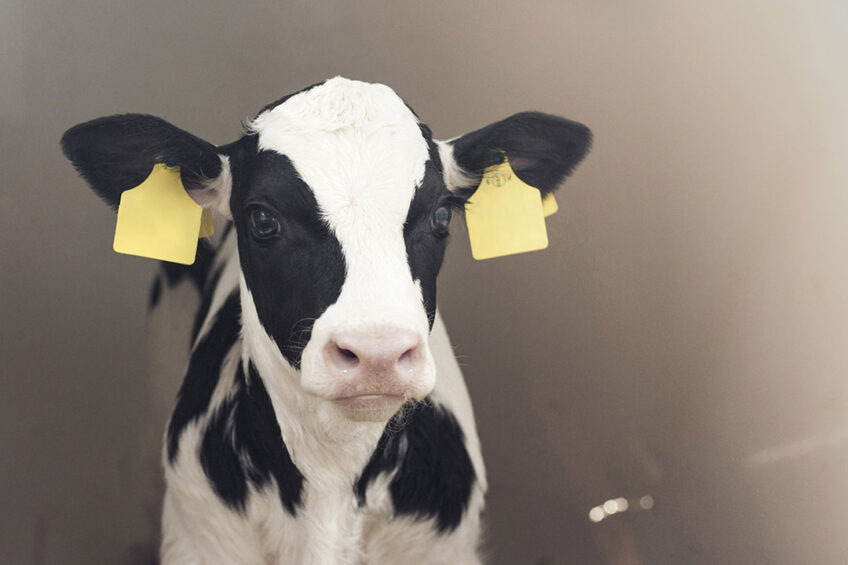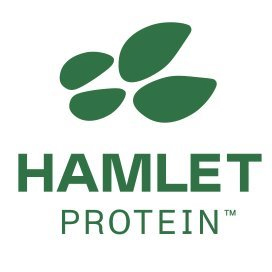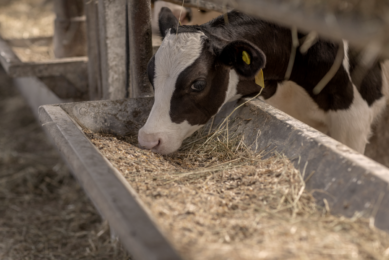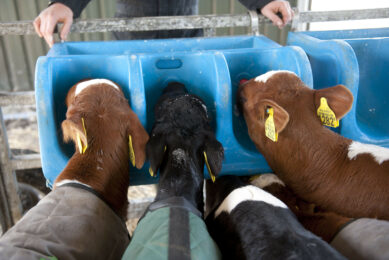Low scouring around weaning

Clean and functional enzyme-treated proteins are cost-competitive alternatives to whey and soy products, turning calves into robust and vital animals that grow to their full potential.
Immature gut system
The immaturity of the gastrointestinal system is the reason a calf’s transition to ruminant can be troublesome. From birth, calves have an oesophageal groove, a muscular structure that shunts milk directly into the abomasum, bypassing the rumen. This means that newborn calves are functional monogastrics in terms of their ability to break down feed and absorb nutrients. As is the case for other young animals, the secretion of various digestive enzymes is also limited, emphasising the need for highly digestible ingredients at this early stage. The luminal surface area of the rumen has a smooth appearance with no papillae development and therefore also no absorption capacity. This is not a problem in the first few weeks after birth as nutrients are absorbed in the small intestine, and the nutritional requirements are met entirely by colostrum and milk products.
When starting the transition to solid feed, the pre-starter feed should be introduced gradually. The purpose of this is twofold: to initiate the development of the rumen and to motivate calves to increase their solid feed intake in preparation for weaning. During weaning, where milk feeding is reduced and pre-starter feed intake increases, the pre-starter becomes the major contributor of energy and nutrients over time. This naturally emphasises the importance of the bioavailability and utilisation of ingredients used in the pre-starter. The same applies to protein ingredients used in calf milk replacers (CMR): high level of bioavailability and utilisation is essential as long as milk is fed to fulfil nutrient requirements and secure consistent high growth.
How to select protein ingredients
Raw unprocessed soy naturally has factors that primarily act as biopesticides, protecting the beans against moulds, bacteria and from being overeaten by wild animals. All factors that interfere with the utilisation of nutrients when used as feed should be avoided for maximum utilisation in calves. These factors are collectively defined as anti-nutritional factors (ANFs), and they are harmful to gut physiology and morphology and subsequently depress animal growth and increase incidence of scouring.
The ANFs can be grouped in many ways according to their harmful effects on nutrient utilisation and biological responses in animals. In broad terms the most harmful ANFs are those that depress protein digestion and absorption (trypsin, chymotrypsin inhibitors and lectins), utilisation of minerals (i.e. phytic acid), flatulence factors and osmotic diarrhoea triggers (i.e. stachyose, raffinose and verbascose) and antigenic proteins (i.e. beta-conglycinin and glycinin) that activate the immune system unnecessarily, causing oxidative stress responses which result in villi atrophy locally in the gut system.
Processing of soy can reduce the adverse effects caused by ANFs; heat treatment is an often-used method and includes toasting, extrusion and steaming. In fact, heating to excess effectively inactivates ANFs by denaturing protein structures. However, excess heating, besides inactivating ANFs, simultaneously results in loss of nutritional value, including amino acid digestibility, by the formation of irreversible complex bindings known as the Maillard reaction. Heating at 110°C for up to 30 minutes does not impact amino acid digestibility; however, 150°C for three minutes or more significantly reduces digestibility. To accommodate the need for a quality protein source without simultaneously having to deal with scouring and low feed utilisation, Hamlet Protein has developed a gentle processing technique that includes selected enzymes and gentle heating while protecting the essential amino acids. This results in highly digestible protein ingredients which are better utilised, particularly by little calves, for a more uniform and vital calf herd.
Replacement of whey in calf milk replacers
Dairy protein is the natural first choice of proteins when feeding calves due to the nearly 100% digestibility of its amino acids; however, dairy protein is also the most expensive protein source. A cost-competitive alternative to dairy proteins is needed, especially for veal production, but producers of rearing calves and heifer calves also benefit from a cost-competitive alternative.
Soy protein products are the preferred vegetable protein choice as an alternative to whey protein due to the favourable amino acid profile and high protein concentration. However, the products must be of high quality in terms of nutritional values and product functionality if they are expected to partially replace whey protein. An enzyme-treated soy product, HP 100, has proven an excellent alternative in replacing 50% of whey in CMR. The calves were fed CMR containing HP 100 continuously for four weeks post-calving without compromising growth while significantly improving faecal consistency (Figure 1 – Faeces are firmer in milk-fed calves when HP 100 is included in the CMR).
The physical functionality of soy protein should be critically evaluated prior to mixing into a CMR. Products replacing whey protein need to stay in suspension and avoid sedimentation while calves are drinking. The HP 100 stays longer in suspension with less product sediment compared to other soy protein sources.
Figure 1 – Faecal consistency improved with HP 100. Faecal score: 1= normal, solid; 2= semi-formed, pasty; 3= loose, stays on top of bedding;4= watery, sifts through bedding.

Protein of choice in pre-starter feeds
By extension, these qualitative descriptions of a clean protein ingredient achieved by an enzymatic treatment are reflected in higher growth performance, more uniform calf herd and less scouring. (Figure 2 – At 10 weeks of age when calves are only fed soy protein, the hindquarters were cleaner and faecal condition was firmer when HP 300 was included in the pre-starter feed.) A commercial Dutch rosé calf producer compared the use of enzyme-treated soy (HP 300) to soybean meal (SBM) in pre-starter feed to more than 100 calves. The calves were split into two treatment groups. Within each of the two treatments were subgroups, calves above or below 54kg. By the end of the trial, calves fed HP 300 grew better and the little calves caught up with the bigger calves by 10 weeks of age. This trend was also reflected in liveweight at slaughter and carcass weight. SBM-fed calves were 2kg lighter than calves fed with HP 300 (carcass weight).
Figure 2 – Calf hindquarter and faecal scores were cleaner and firmer when fed enzyme-treated soy protein.

Avoid scouring and secure high protein utilisation
In conclusion, growth data of rosé calves and cost optimisation of CMR for veal or dairy calves are both important considerations when feeding calves. Clean and highly bioavailable amino acids with good functionality from enzyme-treated soy proteins is a reliable alternative to whey and other soy products. The right protein source for CMR or pre-starter feeds is needed to avoid scouring and to secure high protein utilisation, amino acids deposition in muscle, and organ development to get a uniform calf herd while maximising animal performance.
Author: Christine Brøkner, PhD, technical manager at Hamlet Protein
Join 13,000+ subscribers
Subscribe to our newsletter to stay updated about all the need-to-know content in the dairy sector, two times a week.




